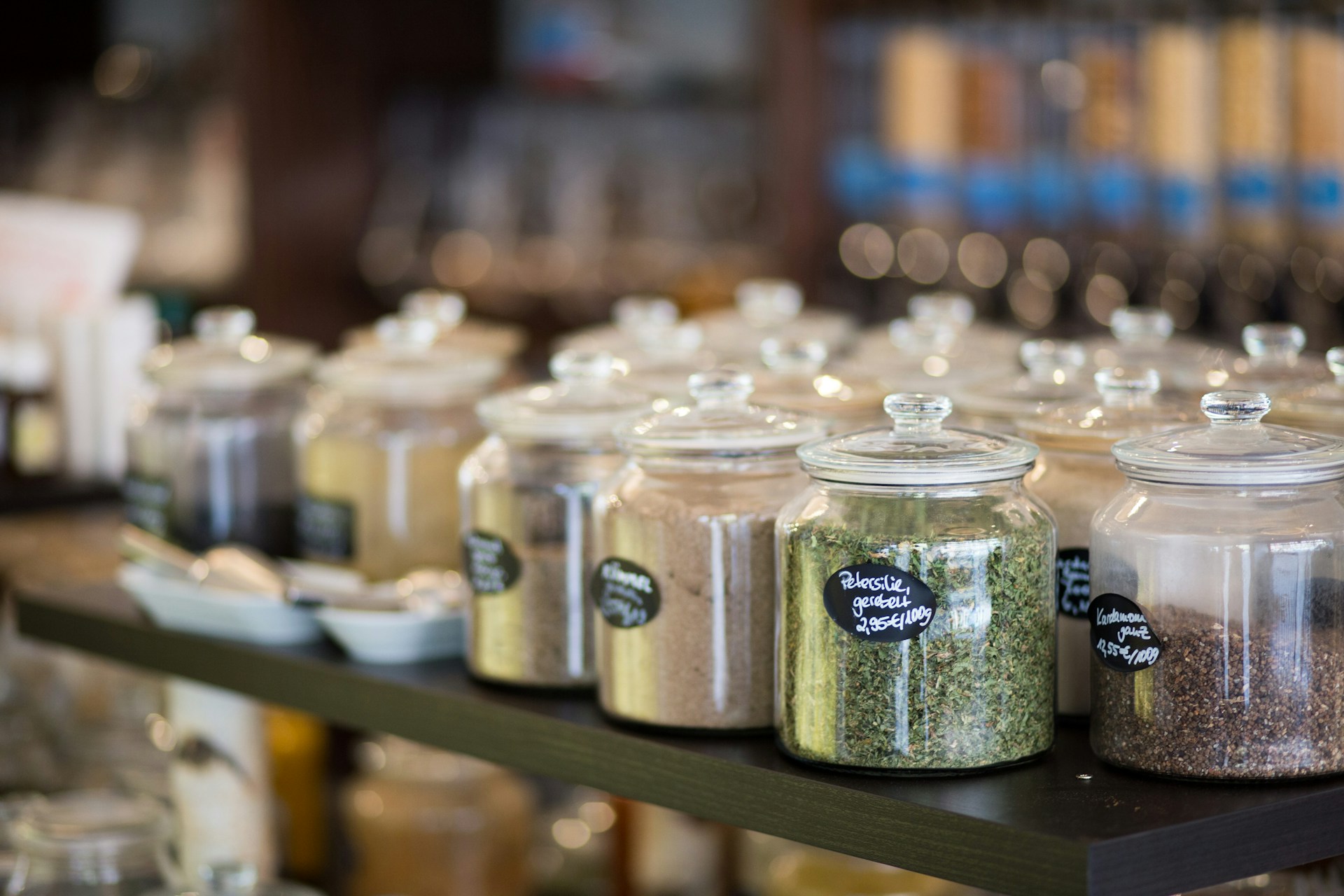Living on a planet with finite resources, we face a growing challenge – waste. Landfills are overflowing, oceans are choked with plastic, and our consumption habits are putting immense strain on the environment. But there’s a ray of hope: Zero Waste Living.
Beyond Recycling: A Holistic Approach
Zero waste living is more than just tossing your plastic bottles in the blue bin. It’s a comprehensive philosophy that aims to reduce waste generation at its source. By adopting a more mindful approach to consumption and embracing reuse and responsible disposal, we can significantly lessen our environmental impact.
Why Choose Zero Waste?
The benefits of zero waste living go far beyond environmental protection. Here’s what you can expect:
a. A Lighter Footprint:
By minimizing waste, you directly contribute to a healthier planet, cleaner oceans, and a more sustainable future.
b. Potential Cost Savings:
Reducing unnecessary purchases and opting for reusables can lead to significant cost savings in the long run.
c. Empowerment and Connection:
Taking control of your consumption habits fosters a sense of personal empowerment and allows you to connect with a like-minded community passionate about sustainability.
The Zero Waste Hierarchy: A Roadmap to Reduction
The zero waste hierarchy provides a framework for prioritizing waste management practices. Think of it as a pyramid, with the most crucial step at the base:
a. Reduce:
This is the cornerstone of zero waste living. Focus on consuming less, buying only what you truly need, and refusing unnecessary items. This might involve planning meals to avoid food waste, borrowing instead of buying, or opting for experiences over material possessions.
b. Reuse:
Give new life to existing items! Repair clothes, repurpose jars and containers, and find creative ways to reuse everyday objects. This extends the lifespan of products and keeps them out of landfills.
c. Recycle:
While not the primary focus, recycling still plays a role in zero waste living. Ensure you understand your local recycling guidelines and separate recyclables properly.
d. Rot:
Food scraps and yard waste don’t have to end up in landfills! Composting these materials creates nutrient-rich soil for your garden, diverting waste and promoting sustainability.
e. Recover:
Even after reaching the end of their lifespan, some materials can be recovered through upcycling or donation. Upcycling involves transforming unwanted items into something new and useful, while donation allows others to benefit from what you no longer need.
Implementing Zero Waste at Home: Room by Room
Now, let’s delve into practical steps to implement zero waste living in your own home:
a. The Kitchen:
Plan your meals to avoid food waste, buy in bulk with reusable containers, store food properly, and utilize reusable produce bags. Compost food scraps and use natural cleaning solutions whenever possible.
b. The Bathroom:
Opt for bar soap instead of bottled body wash, switch to reusable menstrual products, and choose refillable razors. Consider DIY cleaning solutions with vinegar and baking soda for a more sustainable approach.
c. Cleaning Products:
Ditch the harsh chemicals and explore eco-friendly cleaning products or create your own using natural ingredients. Baking soda, vinegar, and lemon juice can be powerful cleaning allies.
Zero Waste on the Go: Embracing Sustainability Beyond Your Doorstep
Living a zero-waste lifestyle isn’t confined to the four walls of your home. Here’s how to minimize waste even when you’re out and about:
a. Planning is Key:
Preparation is half the battle. Carry a reusable water bottle, shopping bags, and utensils to avoid relying on disposables. Pack your lunch in reusable containers and avoid impulse purchases at convenience stores.
b. Say No to Single-Use:
Make a conscious effort to refuse single-use plastics and disposables wherever possible. Invest in a reusable straw, coffee cup, and food container to eliminate the need for disposable alternatives.
c. Mindful Shopping:
Be an informed consumer on the go. Choose produce with minimal or no packaging and opt for products with recyclable or reusable packaging. Look for stores that offer refill options for everyday products like detergents and cleaning solutions.
Zero Waste Travel:
Traveling doesn’t have to come at the expense of the environment. Here are some tips for minimizing waste while exploring new destinations:
a. Refill and Reuse:
Pack travel-sized containers for toiletries and refill them with your favorite sustainable products. Consider solid alternatives like shampoo bars to avoid plastic bottles.
b. Pack Light:
Resist the urge to overpack. Opt for versatile clothing that can be mixed and matched, and consider doing laundry while traveling to minimize baggage and avoid disposable laundry bags offered by hotels.
c. Support Eco-Friendly Options:
Choose eco-conscious accommodations that prioritize sustainability. Look for hotels with recycling programs, water-saving measures, and a focus on locally sourced food.
Embracing a Zero Waste Mindset: A Shift in Perspective
It is more than just a set of practices; it’s a shift in mindset. Here’s how to cultivate a sustainable way of thinking:
a. Challenge Consumerism:
Break free from the cycle of excessive buying. Resist impulse purchases and ask yourself if you truly need an item before adding it to your shopping cart.
b. Minimalism and Sustainability:
Minimalism and zero waste living go hand in hand. Embracing a minimalist lifestyle naturally reduces clutter, discourages unnecessary purchases, and minimizes waste generation.
c. DIY and Upcycling:
Get creative! Explore DIY projects and upcycling as ways to extend the life of existing items. Repurpose old clothes, upcycle jars and containers, and find innovative ways to breathe new life into what you already own.
d. Community and Support:
Connect with others on their journeys. Join local zero-waste groups, follow sustainable influencers online, and find inspiration from like-minded individuals.
Conclusion: A Sustainable Future Starts Now
Zero waste living is a journey, not a destination. It’s about making conscious choices, adopting sustainable practices, and inspiring others to do the same. By embracing this philosophy, we can collectively move towards a healthier planet, a more mindful way of living, and a brighter future for generations to come.
So, take the first step today! Start by implementing a few simple changes in your daily routine. Share your journey with others and inspire a ripple effect of sustainability. Remember, even small actions have the power to create a significant impact.
Frequently Asked Questions (FAQs) on Zero Waste Living:
As you embark on your zero-waste journey, you might encounter some questions. Here are some commonly asked questions and helpful answers:
1. Is achieving zero waste even possible?
Technically, achieving absolute zero waste might be unrealistic. However, the goal is to significantly reduce waste generation and strive for a more mindful consumption lifestyle. Every step you take towards minimizing waste contributes to a more sustainable future.
2. I live with roommates/family. How can I get everyone on board?
Open communication is key! Discuss the benefits of zero waste living with your housemates or family. Start small with changes everyone can agree on, like using reusable grocery bags or composting food scraps. Lead by example and celebrate your collective progress.
3. Zero waste living seems expensive. Is that true?
While there might be an initial investment in reusable items like water bottles and shopping bags, you’ll likely save money in the long run. Reducing single-use purchases and buying in bulk (with reusable containers) can lead to significant cost savings. Additionally, consider the long-term environmental benefits – a priceless investment.
4. I’m worried about feeling deprived. Can I still enjoy my favorite things?
Absolutely! Zero waste living isn’t about deprivation; it’s about mindful consumption. You can still enjoy your favorite things, but perhaps in a more sustainable way. Explore reusable alternatives, support eco-conscious brands, and focus on experiences over material possessions.
5. What if I mess up? Does that mean I’ve failed?
Everyone makes mistakes! Don’t be discouraged by occasional setbacks. The key is to learn from them and recommit to your zero-waste journey. Remember, progress, not perfection, is the goal.
Additional resources for Your Zero Waste Journey:
a. Zero Waste International Alliance (ZWIA): https://zwia.org/ – A global network promoting zero waste solutions and education.
b. The Story of Stuff: https://www.storyofstuff.org/ – A website and movement dedicated to raising awareness about excessive consumption and its environmental impact.
c. Bea Johnson’s Zero Waste Home: https://zerowastehome.com/ – A popular blog and book offering practical tips and inspiration for achieving a zero-waste lifestyle.
Remember, every step towards zero waste living makes a difference. Start small, celebrate your progress, and don’t be discouraged by setbacks. Together, we can create a more sustainable future, one reusable cup and mindful purchase at a time!




